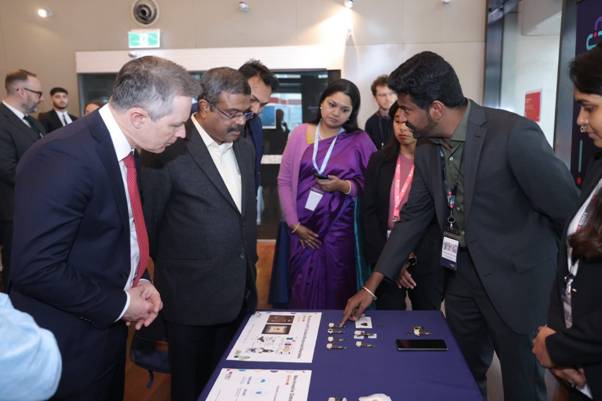NEW DELHI: Pointing out that cooperation in education is the fulcrum of the India-Australia relationship, Union Minister for Education Dharmendra Pradhan has said that that together, both the countries can advance knowledge, leverage technology for global challenges, and create endless opportunities for innovation and entrepreneurship for students.
Pradhan delivered the plenary speech at the Australian International Education Conference in Melbourne on October 23 and held a bilateral meeting with his Australia Minister for Education Jason Clare MP. Members of the Indian delegation, heads of the universities of both countries, and other dignitaries were also present at the event.
Commending the historical and evolving partnership between India and Australia, he reaffirmed the further strengthening of these ties under the leadership of Prime Minister Narendra Modi and his Australia counterpart Anthony Albanese.
Highlighting the role of National education Policy (NEP) 2020 in the fourth Industrial Revolution, he said education must prepare students to be creators and managers of technology.
“India’s NEP provides a framework emphasising digital literacy, soft skills, critical thinking, and interdisciplinary studies to adapt to evolving job markets, he added.
He spoke about how the NEP-2020 has transformed India’s learning landscape into a powerhouse of possibilities and the enduring India-Australia ties and the remarkable strides made in education cooperation powered by the NEP-2020.
‘Vishwa-Bandhu India’
“The establishment of Australian university campuses in India is just the beginning, with much more potential to be realised. A ‘Vishwa-Bandhu’, India is committed to being a trusted partner in human-centric development. The idea is to build and nurture global citizens, contributing to a brighter future for the next generation,” Pradhan said.
Commending India’s education systems, Jason Clare said, “By 2035, one in four people around the world who get a university degree will get it in India. He mentioned how Australian universities like Deakin had been in India for 30 years and now Wollongong has one campus.
He praised the work the six Innovative Research Universities are doing by exploring options for a consortium campus in India.
Earlier in the day, Pradhan discussed with Jason Clare the shared priorities of India and Australia in early childhood care, capacity building of teachers, and the potential for school twinning initiatives.
They agreed to strengthen the institutional linkages between Indian and Australian higher education institutions in critical and emerging technologies. They explored the possibility of establishing branch campuses of Australian universities in India.
Pradhan also met Assistant Minister of Foreign Affairs Tim Watts, Premier of Victoria Jacinta Allan.
The Union Minister also visited South Melbourne Primary School and explored the innovative approaches to early childhood education.
Discovery to Device
He explored the ‘Discovery to Device’ med-tech facility, fast-tracking ideas to products, at the Royal Melbourne Institute of Technology (RMIT), a hub for technology, design, and enterprise. He discussed how RMIT can partner with top Indian HEIs to equip Indian students with future skills and jobs.
Discovery to Device transforms ideas into products, through prototyping and scale-up manufacture, to create real-world impact.
Pradhan also visited Monash University and received key insights into the university’s research and innovation ecosystem and their plans to strengthen educational ties with Indian institutions through its New India Plan.
He also toured the Innovation Lab & Center for Nanofabrication— commending their impressive facilities supporting talent in driving ideas into impactful innovations.
Pradhan’s visit to Australia from October 22 to 26 is expected to foster collaboration in critical areas of mutual interest in education.


Comments are closed.